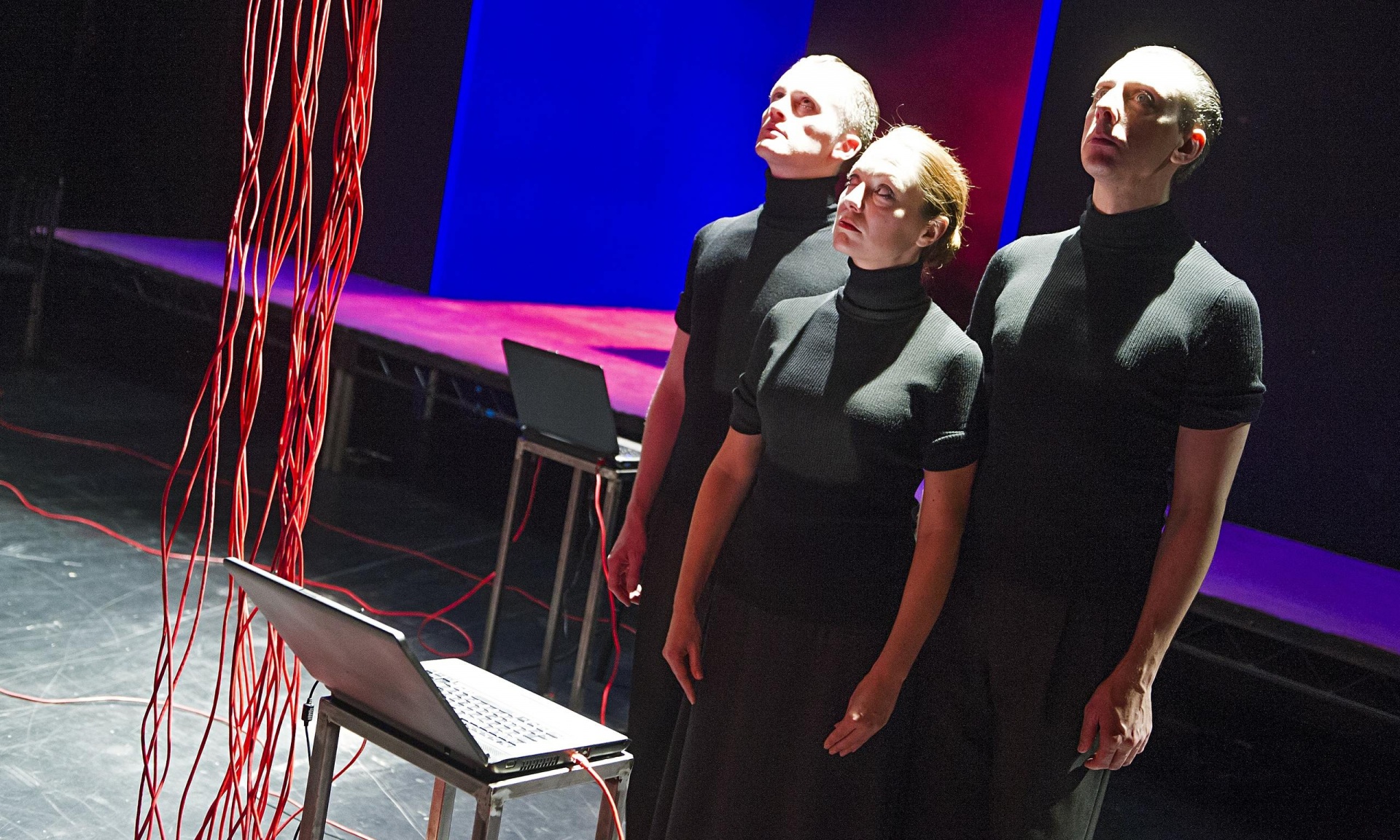Camera Lucida, Barbican Pit, EC2
reviewed for The Times, 31 October 2014

If you’ve already encountered Dickie Beau, it’s probably as a virtuoso cabaret performer. An accomplished drag artist, he has a knack for making us look askance at the way we conjure bodies into being — not just our own, with the usual array of push-up bras, waxes and dye jobs, but the collectively imagined bodies of the dead and iconic.
In his previous one-man show Twilight of the Icons, Beau put flesh on the words of the deceased, lip-synching in character to recordings of Marilyn Monroe and Judy Garland’s final interviews. Here he’s again attempting to contact the dead, combining archive voices of Virginia Woolf, William Burroughs and even the widowed Bess Houdini with recordings of hooky exorcisms.
You need all that background to stand half a chance of understanding what Beau is trying to do here. Thanks to a prize from the Oxford Samuel Beckett Theatre Trust, Beau is finally stepping away from the one-man format, enjoying the funds to amp up the acoustic tricks and make his directorial debut overseeing a cast of four. He’s certainly passed on his tricks as a lip-syncher, but Camera Lucida feels like a poorly structured, over-financed art installation rather than a piece of narrative.
We sit through 75 minutes of disembodied voices, recordings of long-dead writers musing on the afterlife and the void. The central structure, if there is one, consists of a Midwestern radio show peopled by ungenerous American clichés who call in to share their sense of spiritual consternation. It’s unclear whether this is pastiche or homage to the 1950s seance; it’s certainly trite.
There is something valuable and theatrical here about the urge to capture the mutable and transient. Hence the title, a reference to Roland Barthes’s work on photographic theory, itself named after an early shadow box. And Camera Lucida is at its best when Beau goes back to his understanding of bodies: a grieving middle-aged daughter talks of her fascination with her mother’s corpse: “a husk, an image, a carcass, a shell”. If you’re familiar with John Adams’s Christian Zeal and Activity or with Robert Wilson, this might seem derivative; for most people it’s just a pretentious mess.
In keeping with the prize that funds it, this is littered with references to Beckett: the recordings in Krapp’s Last Tape, the disembodied, choral heads of Play, caught in interminable stasis. Yet even Beckett at his slowest has direction and pace. Camera Lucida remains an interminable void.






